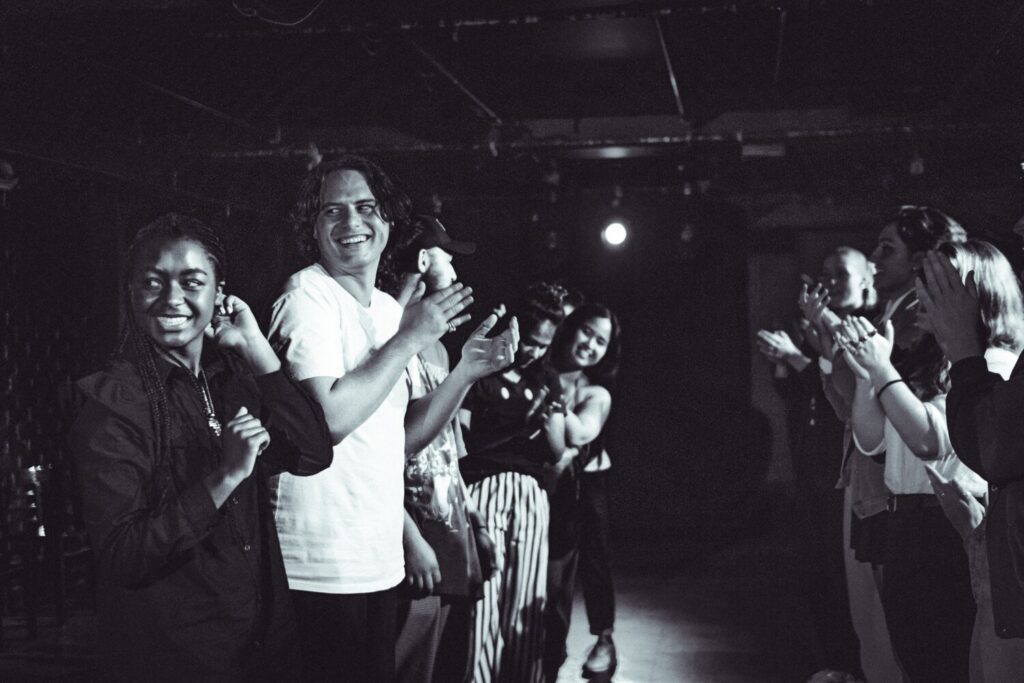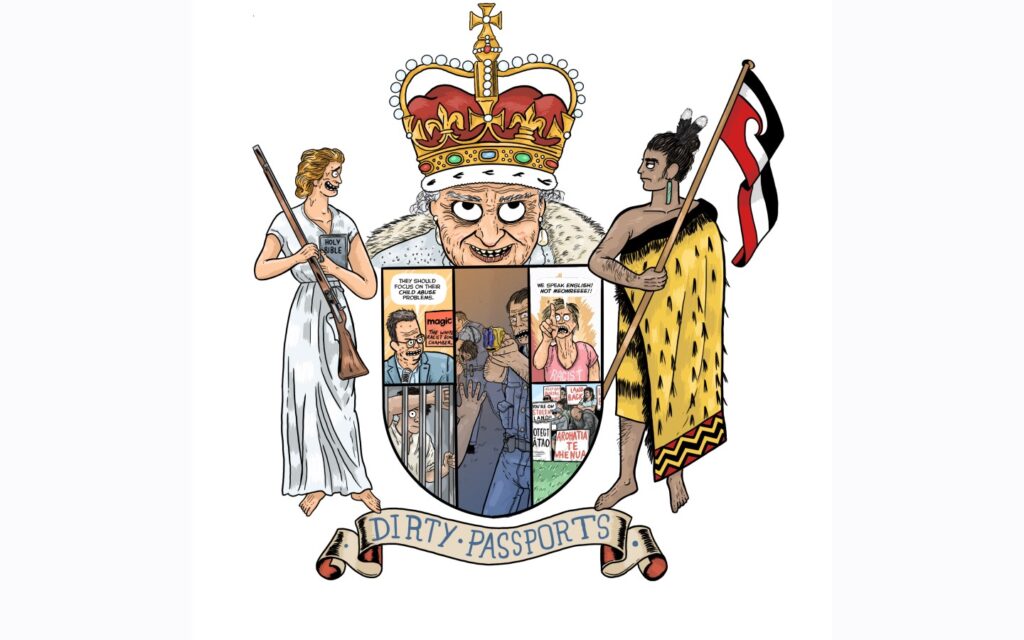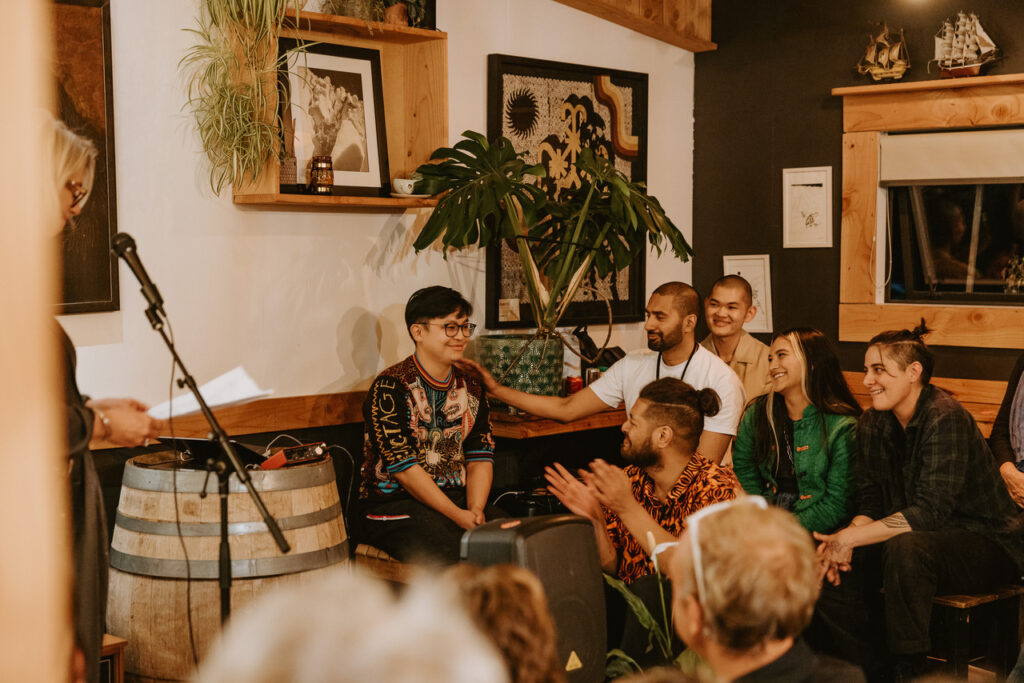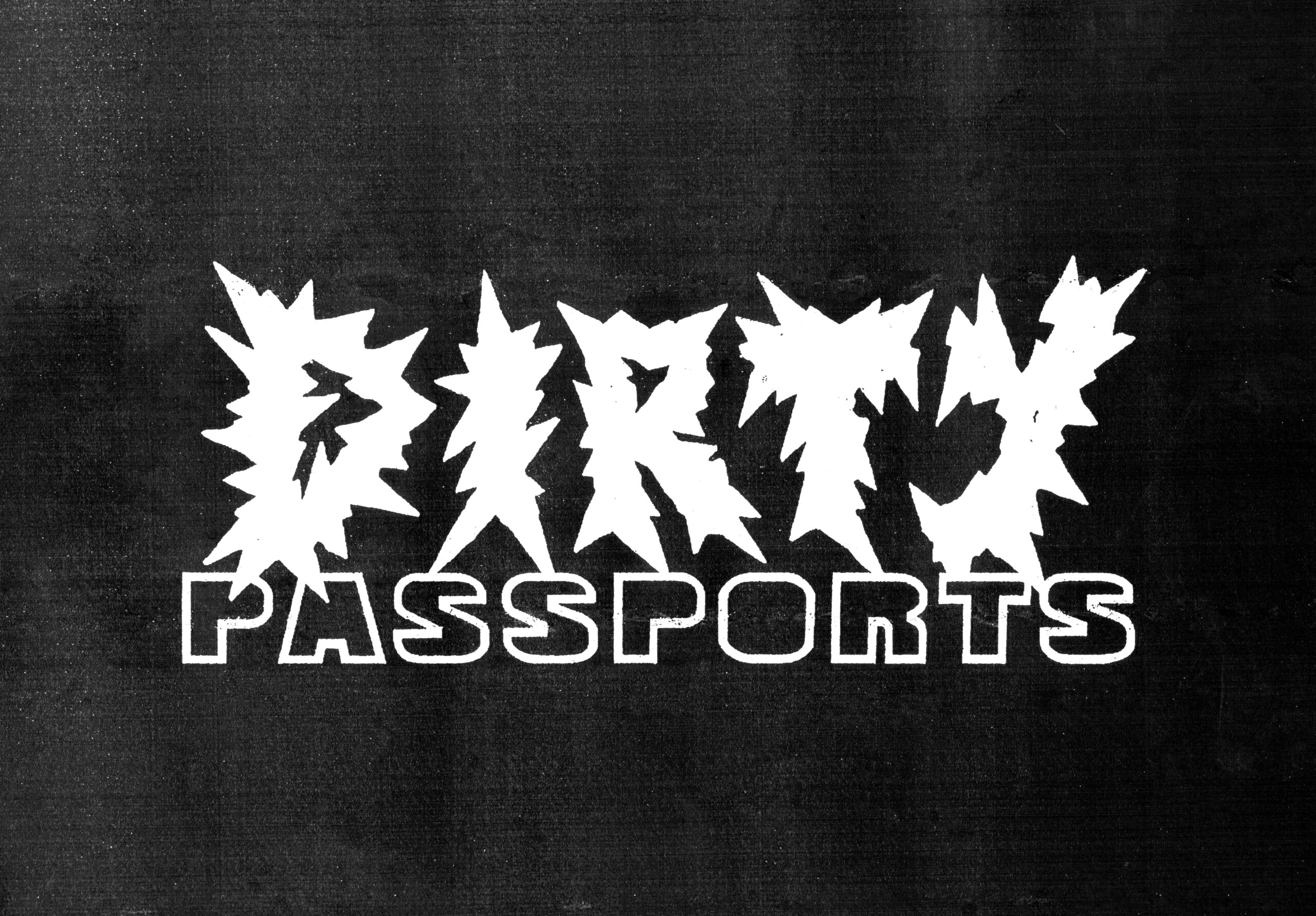In ten micro-essays Nathan Joe, curator of DIRTY PASSPORTS, looks backwards and forwards at his spoken word event.
DIRTY PASSPORTS AS INVITATION/ORIGIN STORY
It started with a phone call (or was it a Zoom call?) with Nisha Madhan who, at the time, was working as the Programme Manager at Basement Theatre.
“Do you want to produce a poetry show?”
It was something like that. Something like an invitation. Sometimes that’s all it takes to make something happen. We all have ideas or seeds sitting dormant. The right person, the right timing, is all it takes to turn an idea into a reality.
I had become someone disenfranchised by the limitations and difficulties of producing theatre. After all, it takes all the energy and effort (that is admittedly what makes it special too), and then it’s gone? And what is it really saying? There was something about the simplicity of a poem or piece of text simply read by the person who wrote it. There was something democratic about the medium of poetry I had fallen in love with. The simplicity of what it takes. The complexity of what you might say. The directness, the lack of faffing about. But, ultimately, the possibilities of being present without pretence. It is what it is. And sometimes that is enough.
DIRTY PASSPORTS AS CURATION
DIRTY PASSPORTS was the very first thing I curated. The only provocation was, at the time, Nisha Madhan encouraging or recommending using Sam Te Kani. It, also, naturally came out of winning the National Poetry Slam.
At the time, I had been to enough spoken word events to understand what I liked and disliked about them. To have a sense of what was missing.
For me, most adult poetry spaces were very white. For me, most open mics were too long. For me, most spoken word events were not naughty (transgressive? rude?) enough.
A poetry event is a perfect playground to learn curation. It’s where I started. I’m not sure I would have so enthusiastically stepped into programming at Basement or Auckland Pride without having done it. I owe it so much.

DIRTY PASSPORTS AS BIPOC
Originally pitched as a BIPOC (Black, Indigenous and Person of Colour) lineup, this acronym’s moment for DIRTY PASSPORTS is possibly in need of questioning. The term was popularised in 2013 on social media but feels more deeply relevant to the USA. I found it useful at the time, particularly as someone searching for something that might be ubiquitous enough to frame the curation. More important to me was centring the voices that felt vital at the time. More important was seeing minorities we don’t often see together on stage at the same time.
I’m not sure if BIPOC is the right term to use to talk about DIRTY PASSPORTS anymore. It’ll do in a pinch, but it also feels like a placeholder. A placeholder for something when language is inadequate. But, what I do know is that there will always be a need for othered and marginalised voices to intersect and speak collectively. Marginalised voices needing platforms, by definition, will always be evergreen.
DIRTY PASSPORTS AS PERFORMANCE POETRY
Performance Poetry (or spoken word) can be a dirty term. It conjures up particular images (and sounds). Clicking, yelling, trauma-dumping. I mostly believe that is a misconception or rather an oversimplification. After all, we are living in the age of Tusiata Avia poetry collections adapted for the stage.
But, I am constantly curious to see what else it can be. Rather than trying to operate in the negative space of what it IS, I do dream about its alternative. Part of that, to me, is questioning what a poem is in the first place. After all, no literary genre/form invites as much discourse as the poem. Perhaps that is why spoken word feels like an expansive term, encompassing and stretching the use of words and language in a live environment. Perhaps that’s why I am so drawn to lyricists and comedians and playwrights as storytellers too as poets.
DIRTY PASSPORTS AS (UN)SUSTAINABLE
What is considered an active project? Though DIRTY PASSPORTS is now over three years old, it has been something of a peripheral project and practice. This has suited me fine. The beauty of DIRTY PASSPORTS for me has been its very informal nature. The risk of anything becoming established or fixed or proper is that it is then tied to all the things proper things are associated with.
Doing an event independently without secured resources or funding can be a slog, tiresome, and invite diminishing returns. But it’s also quite freeing to not be at the mercy of delivering something for the sake of delivering something.
When do you stop doing something? Well, when you stop loving it, right? But it’s never quite that easy. You can stop loving things for a moment. I have. That is to say, stopping doesn’t have to be forever.
DIRTY PASSPORTS AS RELEVANCE
Sustainability is one thing, but relevance is another. Just because something can stay alive doesn’t mean it should. No one wants to become a sacred cow that is begging to be tipped over or to fade into the shadow of relevancy. No one wants to be outdated or superfluous. In the three-plus years of DIRTY PASSPORTS, a lot has changed and performance poetry is as visible as ever. It doesn’t take much to find a performance poetry or open mic event if you know where to look.
The biggest question for me is how DIRTY PASSPORTS can continue to remain useful (rather than relevant). What might it look like if a curated lineup show was simply the beginning?
DIRTY PASSPORTS AS BRAND
What’s in a brand? DIRTY PASSPORTS is as much the first piece of imagery associated with it. The illustration I commissioned from Daniel Vernon (yeehawtheboys) is so great that it in some ways defines the vibe of the show. It’s hard to let go of that image when you also think it sells tickets. While I’m not ready to abandon it, I’m excited to continue iterating and experimenting with how people see it.
I recently commissioned another artist, Alexander 葉 L. Brown (Wrought Material), to create a logo and monogram. Something more easily disseminated and functional than a poster image. Something that hopefully captures the spirit of DIRTY PASSPORTS as an ongoing project. To show, I’m still the same, but I want you to know I’m ready for change. Like getting a new haircut after a break-up or buying a new shirt.

DIRTY PASSPORTS AS NATIONWIDE
Last year was the first time I took DIRTY PASSPORTS outside of Tāmaki Makaurau thanks to WORD in Ōtautahi. This year, I was able to take it to Wānaka and Ōtepoti. There’s always a fear in unknown audiences. There’s always a worry about competing outside home turf. But audiences were hungry for it.
Living in Tāmaki Makaurau, it is easy to take what you have for granted. By taking these stories across the motu, you realise there is a demand and need for them outside your bubble. That, maybe, these stories sometimes are even more desired elsewhere. That doesn’t mean there isn’t value in continuing to do shows here in Tāmaki, but anyone who is producing live events knows it can feel rather like proving you deserve to be seen. Or that you’re only playing to your friends or peers.

DIRTY PASSPORTS AS XXXMAS SPECIAL
So, what makes the coming DIRTY PASSPORTS special? Each participant invokes something of the dichotomy of naughty and nice. Two wolves inside all of us. I invite the artists to evoke something of that naughtiness and/or niceness.
But, most importantly, with our XXXmas Special I hope audiences are introduced to old and new favourites. It’s an invitation for me to curate around a theme and be silly. It’s not a holiday I take very seriously, and yet it contains so much longing and potential. It is a holiday that begs to be satirised. A holiday we also sincerely hope goes well. It’s kinda bullshit, but it’s bullshit we can’t resist.
It features regulars like Manu Vaea and Sam Te Kani who always promise something profane. We have newcomers to the stable, including Saraid de Silva and Tze Ming Mok, embodiments of artists whose work is deeply politically motivated. After all, what better way to celebrate Christmas than to say FUCK YOU to white supremacy? And, to round it all off, we have music artist Tei, who will deliver some undeniable bangers on the night.
DIRTY PASSPORTS AS ACKNOWLEDGEMENT
This inconsistent journey wouldn’t have been possible without every single person in every single lineup: Samuel Te Kani, Manu Vaea, Aiwa Pooamorn, Gemishka Chetty, Takunda Muzondiwa, Jai Selkirk, Kenji Iwamitsu-Holdaway, Shania Pablo, Leva Kusari, Eric Soakai, Ravikanth Gurunathan, Ahi Karunaharan, David Correos, Alex de Vries, Ngaio Simmons, Mush, Vira Paky, Danny Lam, Khadro Mohamed, Van Mei, Juanita Hepi, Josiah Morgan, Kevin Jared Hosein, Tei, Rushi Vyas, David Eggleton, Tough Guy, Ruby Macomber and Jessica Hinerangi.
Thank you.
Catch DIRTY PASSPORTS: XXXmas Special at Basement Theatre on Friday 13 December at 8:00pm.
Tickets are $28 standard, $18 concession and available to purchase from iTicket.



